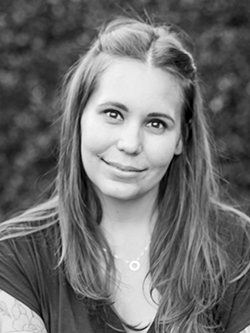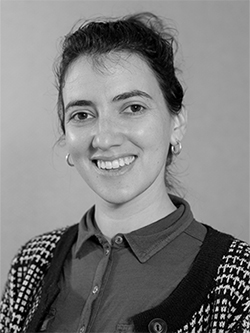 Dr Yolandi Coetser
Dr Yolandi Coetser Dr Yolandi Coetser, a senior lecturer in the School of Philosophy, says her project is both philosophical and interdisciplinary in nature. "Philosophers approach issues from many different angles. This includes reading work from scientists, such as environmental scientists in this case."
She says understanding what the reality is helps philosophers to think critically about the reality from an informed position.
Dr Coetser says the reach of her project is wider than only philosophy, as it combines multiple areas of study. She hopes to include academics from other disciplines in the project. "Environmental philosophy requires environmental philosophers to have a comprehensive understanding of the environment by engaging with the environmental sciences."
She explains that the objectives of the "Southern African Society for Environmental Philosophy" project are to align with the Sustainable Development Goals outlined by the United Nations. These include Sustainable Development Goals 4 (Quality Education), 5 (Gender Equality), 10 (Reduced Inequalities) and 13 (Climate Action).
According to Dr Coetser, there is currently no formal association in South Africa or the Southern African Development Community region that is dedicated to environmental philosophy.
"Thinking philosophically enables complex issues to be untangled, which in turn allows for clearer policies to be drafted. Philosophers are also somewhat uniquely suited to think about issues from unique perspectives that are often not the domain of a particular science, for example, thus allowing a more holistic approach to the problems faced because of environmental problems."
Dr Coetser says they aim to create an association dedicated to environmental philosophy in South Africa. She believes this will help to create a more structured environment for discussion and exploration of environmental issues among philosophers in southern Africa. She plans to host an academic conference early in 2024 that will allow the writing of articles for a special journal issue with a focus on postgraduate support and guidance, as well as for conducting a post-conference mentorship programme.
For more information, please send an email to Dr Coetser:
 Dr Laura Phillips
Dr Laura Phillips Dr Laura Phillips, senior lecturer in history in the School of Social Sciences, leads the "Currency, Colonial Economies, and the Making of the South African State" research project. She is joined in this collaborative project by Prof Tinashe Nyamunda and Dr Abraham Mlombo, colleagues from the University of Pretoria.
The project explores how currency making in South Africa's four colonies shaped the establishment of the South African state.
The grant from the NIHSS CRP supports the development of a network of southern African economic historians and will also provide for two master's-degree scholarships.
"While South African economic history as a field of study has been dormant for many years, this project offers the possibility of reinvigorating scholarly debates about capitalism in South Africa."
Dr Phillips says through a deep examination of archival material in South Africa and beyond, the research will offer new insights into the historical processes that underpin contemporary South Africa's systems of value and exchange.
"With this new information, we can begin to understand the country's current economic landscape and how it came into being."
For more information, please send an email to Dr Phillips:
